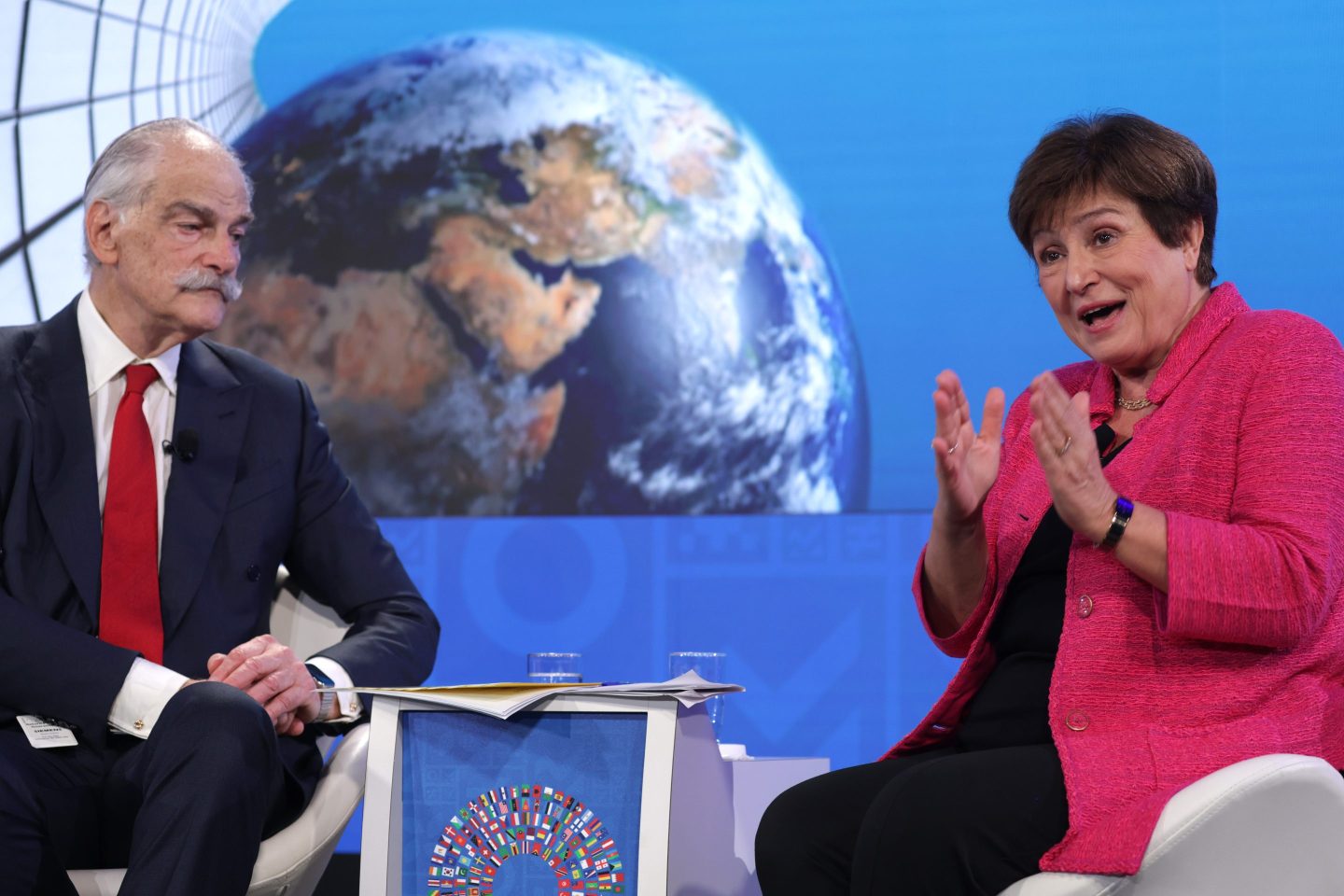Good morning. Peter Vanham here, filling in for Alan.
Spring is in the air, and in Washington that means the IMF/World Bank Spring meetings are underway. For an overview of the accompanying IMF global growth forecasts, read Will Daniel’s piece in Fortune today. In essence, the IMF is worried that rate rises will trigger “fragility” and push the world economy towards a recession.
What stood out to me, however, was the return of another, longer-term shift: the center of gravity of global growth tilting back to the East, and the “West” no longer being able to decisively tip the scale on geo-economic matters—increasingly to its own detriment. Indeed:
- China (+5.2%) and India (+5.9%) will by far be the fastest growing major economies this year, with the U.S. (+1.6%) and the Euro area (+0.8%) grinding to a halt, and Germany (-0.1%) slipping into a recession
- Russia (+0.7%) is expected to return to growth this year (!) despite Western sanctions and the departure of many U.S. and European companies
- Many developing economies (excluding China) are seeing their (dollar) debt servicing levels climb steeply, due to rising interest rates and falling exchange rates
These forecasts are making many representatives present in Washington question the soundness of the decisions central banks and governments in the U.S. and Europe took last year.
In developing economies, for example, rising interest rates are hurting a lot. “They are the wrong policy tool at this moment in time,” Richard Kozul-Wright, director of globalization and development strategies at UNCTAD, a UN agency close to the views of developing countries, told me from D.C. Kozul-Wright quoted economist Robert Solow’s criticism of a similar Fed policy in the 1960s: “To try effectively to wipe out hard-core inflation by squeezing the economy is […] burning down the house to roast the pig.”
Meanwhile, companies and consumers in Germany—the only European country alongside the U.K. projected to experience a recession—may start wondering what the point of Western sanctions on Russia has been. In 2022, Russia successfully rerouted its oil and gas exports to China and India, and in doing so, proved Western governments and IMF forecasters wrong. Its recession last year was much milder than expected, and a large part of the costs are borne by European consumers and companies.
The laughing third in all of this may be China. As the U.S. and—to a lesser extent—Europe are decoupling from Russia and China, the world’s largest emerging market is finally experiencing its post-COVID “spring.”
More news below.
Peter Vanham
@petervanham
peter.vanham@fortune.com
TOP NEWS
Something in the heir
Tyson Foods CFO John R. Tyson, the son of the meat giant's current chairman and great-grandson of its founder, drew public attention after being arrested on charges of public intoxication and criminal trespass in November. Tyson's guilty plea and a fine have resolved the case, but the episode has raised concerns about corporate governance in publicly-traded family-owned companies like Tyson Foods. Wall Street Journal
Climbing the corporate ladder
A recent report from WFH Research found that in-office workers spend more time on career development, mentorship, and professional learning than remote workers, likely due to the personal interactions and collaboration opportunities that are harder to replicate remotely. However, remote work does offer benefits like saved time and money. Fortune
Holmes to surrender
Elizabeth Holmes, founder of the now-defunct blood-testing company Theranos, has been denied bail while she appeals her fraud conviction. U.S. District Judge Edward Davila rejected her request, and she must now begin her 11-year prison sentence on April 27. The Associated Press
AROUND THE WATERCOOLER
Americans really don’t trust crypto, Pew survey shows by David Meyer
Twitter’s former trio of top execs sue Elon Musk’s company for not paying their legal bills by Christiaan Hetzner
Weeks after his ‘big failure’ losing almost $2 billion on SVB, Sweden’s top pension fund chief sacked ‘with immediate effect’ by Prarthana Prakash
‘Synthetic data’ could determine whether or not millennial founder Charlie Javice lied to JPMorgan Chase about millions of fake customers by Luisa Beltran
A new Fed survey suggests ‘the credit crunch has started’ and the tight money era has arrived. Here’s what that means for a recession by Tristan Bove
This edition of CEO Daily was edited by Jackson Fordyce.
This is the web version of CEO Daily, a newsletter of must-read insights from Fortune CEO Alan Murray. Sign up to get it delivered free to your inbox.












